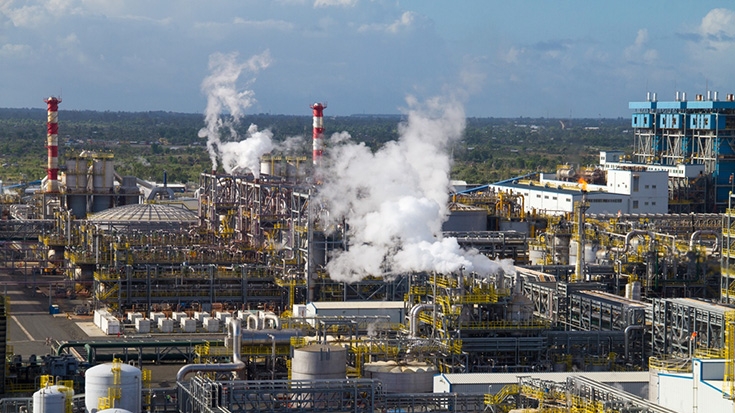The government made efforts to reverse the sharp contraction of public investments during the political crisis that recently shook the country. Internally-financed public investment doubled compared to the previous year. However, total public investment barely reached 3.5% of GDP, which remains insufficient to adequately cover the needs of the country. Public investment were geared toward the social sectors (education and health), agriculture and public works. Public spending was also supported by external financing, including a $45 million budget support from the World Bank in December 2014.
Preliminary estimates indicate surplus in the balance of payments in 2014. It mainly results from substantial decrease in trade deficit following strong performance of mining and textile exports, improvement in service balances and the receipt of transfers by the public sector. Incoming FDI are estimated around $360 million, a level below the average of the five previous years. It partly reflects the end of the investment stage in large mining projects, and the quasi-absence of new investments. Credits to the economy grew by 18.8% in 2014. The new credits were equally allotted between short-term loans and investment credits.
The report also analyses the impacts of the recent evolution of oil prices. The price of crude on the international market fell sharply in 2014. It has accelerated the adjustment of the pump prices to the market price. Lower prices should allow the country to reduce import bills and reduce inflation. It also facilitates faster removal of subsidies which will free up public resources which can be reallocated toward more pro-poor and pro-growth spending. The subsidy mechanism exerted high pressure on public finance in recent years. In addition to the burden of public finance, this policy is regressive and benefited mostly highest income consumers. « Lower oil price offers the opportunity to reform. Madagascar should seize this opportunity for a reform of lower political cost on energy subsidies as did other countries, » said Faniry Razafimanantsoa, Economist at the World Bank.
The “Politique Générale de l’Etat” was presented in 2014. Its implementation started with the revised state budget through increasing available resources and better targeting of spending. With the level of poverty in Madagascar and the years lost during the crisis of the past decade, the challenge remains huge. The National Development Plan should provide more visibility about the future intentions of the Government. The outlook depends mostly on the implementation of reforms by the government which should aim at increasing its revenue, especially tax revenues, as the country’s revenue to GDP ratio is among the lowest in the world, in order to implement its development program and at improving investment climate in support of the private sector.
